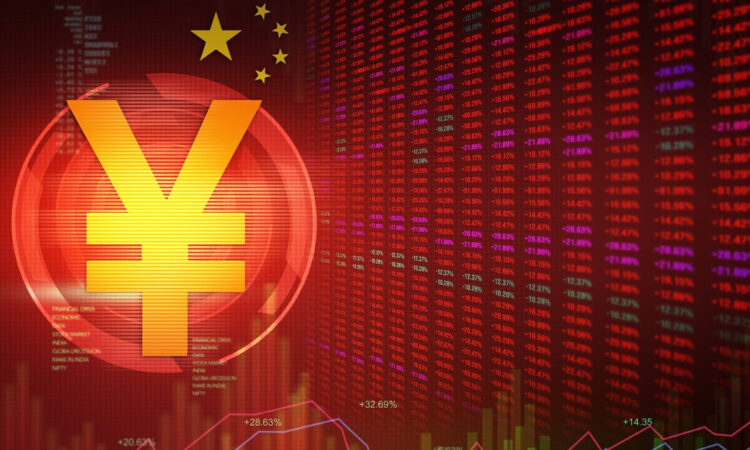Yuan Surpasses Euro to Become Second Most Used Currency for International Settlements Globally

According to the latest data from the International Interbank Payment System (Swift), the Chinese currency has surpassed the euro to become the world’s second largest trade settlement currency. This milestone signifies the growing status of the renminbi in international financial markets and reflects the importance of the Chinese economy in global trade.
Recently, the People’s Bank of China announced that the exchange rate of the Chinese yuan against the US dollar has reached 6.35, a new high in nearly a decade. This means that the international purchasing power and influence of the Chinese yuan is also increasing, even surpassing the euro to become the second largest international currency after the US dollar.
Swift is the world’s largest cross-border payments network, processing trillions of dollars in transactions every day. According to Swift, in September 2023, the yuan accounted for 8.76% of its payments, while the euro accounted for 8.6%, and the US dollar remained far ahead at 38.35%. This is the first time since 2013 that the renminbi has surpassed the euro, and for the first time since 2015, the renminbi has returned to second place.
Tekedia Mini-MBA (Feb 5 – May 4, 2024) registration has started; register here.
Tekedia AI in Business Masterclass opens registrations here.
Join Tekedia Capital Syndicate and co-invest in Africa’s finest startups here. Ten startups available.
There are many reasons for the rise of the renminbi. First, China is the world’s largest exporter and has strong demand for its goods and services in the international market. Second, China’s excellent response to the pandemic has allowed its economy to grow positively in 2020, while other major economies have fallen into recession.
Third, the Chinese government has introduced a series of measures to promote the internationalization of the renminbi, including expanding the scope of cross-border RMB payments, promoting the pilot of the digital yuan, and strengthening currency swap agreements with other countries and regions.
The renminbi has become the world’s second largest trade settlement currency, which has a positive impact on China and the world. For China, this helps reduce exchange rate risks, improve corporate competitiveness, increase the influence of financial markets, and promote multilateral trade and investment cooperation. For the world, this helps to increase international shipments.
However, the euro is the third most used currency for international payments, according to the latest data from the Society for Worldwide Interbank Financial Telecommunication (SWIFT). The euro accounted for 38.4% of global payments in October 2023, up from 37.8% in September. The US dollar remained the dominant currency, with a share of 40.1%, while the British pound came in fourth with 6.9%.
The euro’s rise in popularity reflects its role as a reserve currency and a funding source for trade and investment. The eurozone is the world’s largest single market, with a gross domestic product (GDP) of about 12 trillion euros in 2022. The euro is also used by 19 member states of the European Union (EU) and several other countries and territories that have adopted it unilaterally or through formal agreements.
The euro has several advantages as an international currency, such as its stability, liquidity and low transaction costs. The euro also benefits from the EU’s strong institutional framework, which ensures sound economic governance and financial regulation. The EU has also taken steps to deepen its capital markets and banking union, which could further enhance the euro’s attractiveness.
However, the euro also faces some challenges and risks in the global arena. The eurozone still suffers from low growth and inflation, as well as high public debt and unemployment in some countries. The eurozone also needs to cope with the impact of the coronavirus pandemic, which has caused unprecedented economic and social disruption. Moreover, the eurozone has to deal with geopolitical uncertainties, such as Brexit, trade tensions and regional conflicts.
The euro’s future as an international currency will depend on how the eurozone addresses these challenges and leverages its strengths. The eurozone will need to pursue structural reforms, fiscal discipline and monetary stimulus to boost its economic performance and resilience. The eurozone will also need to enhance its strategic autonomy and global influence, while maintaining its openness and cooperation with other partners. By doing so, the eurozone can ensure that the euro remains a reliable and attractive currency for international payments.
China adheres to a prudent monetary policy and maintains reasonable and abundant liquidity, neither engaging in “flood irrigation” nor “sudden braking”, maintaining the continuity and consistency of monetary policy. At the same time, China has also actively promoted the internationalization of the RMB, expanded the scope and convenience of the cross-border use of the RMB, and increased the number of people.





